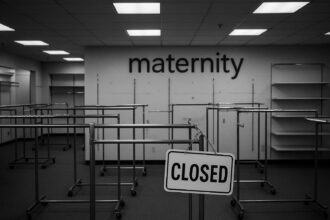After 38 years in business, Paul Filby highlights the severe impact of National Insurance hikes and holiday let regulations on his electrical firm and local tourism, warning that current policies aimed at curbing second homes may be driving businesses – and families – out of Gwynedd.
A local electrician from Gwynedd has expressed profound concern regarding the challenges facing small businesses in the region, in what is becoming an increasingly polarising issue. Paul Filby, a seasoned business owner nearing 60, voiced his frustrations in a heartfelt bilingual letter directed to both local and national politicians, including the Prime Minister. His letter, which secured over 22,500 views online, encapsulated the deep-seated struggles that businesses in Gwynedd are grappling with amidst shifting economic tides.
Having operated his electrical contracting business for 38 years, Filby is concerned not just for his enterprise but for his family, particularly his son William. At only 30, William is already facing the daunting challenge of affordable housing, forced to rent in Wrexham while commuting daily to Porthmadog for work. The family business has seen revenues plummet, halving over the past year, largely attributed to regulatory shifts, including increases in National Insurance that could cost the firm upwards of £17,000 — costs that must inevitably be passed on to customers.
With a business model reliant on the local tourism industry, which accounts for 75% of its turnover, Filby finds himself watching his main customer base falter. “Holiday businesses just aren’t spending; they’re focussing on reactive maintenance,” he lamented. The steep decline in tourist activity signals not just an economic downturn, but a significant erosion of confidence among businesses that have weathered numerous recessions in the past.
The new regulations surrounding holiday lets, which aim to address a growing housing crisis, have further compounded challenges for Filby. His property in Beddgelert, previously thriving with annual occupancy rates exceeding 200 days, now risks classification as a second home due to failing to meet newly imposed thresholds. This shift threatens to transform his holiday let into an unviable asset, incurring punitive council tax penalties instead of beneficial business rates. The Welsh Government’s measures, designed to protect local communities from being hollowed out by second homes and holiday lets, appear to be driving out the very businesses that sustain those communities.
Filby acknowledges the laudable goals of promoting the Welsh language and culture while curbing the influx of second homes but argues that the current policies may be counterproductive. He stated, “It’s not serving those aims. It’s working against them,” echoing the sentiment that preserving local culture should not come at the cost of driving business out of the area. With families like his own struggling, he questions the effectiveness of such policies meant to assist locals.
Since sharing his concerns, Filby has received an outpouring of support from fellow business owners facing similar predicaments, highlighting a widespread sense of frustration within the community. Many share stories of increased taxation and regulatory pressure that threaten their livelihoods and ability to support local families.
Beyond the anecdotal evidence, troubling statistics support Filby’s assertions. Injust the last year, property sales in Gwynedd have fallen by over 14%, with a report from the Principality Building Society noting a staggering 12% decline in residential property prices — the highest in Wales. The situation is exacerbated by additional impending taxes and regulations, including a tourism tax and further licensing requirements, which some locals fear could suffocate remaining businesses.
The response from local authorities has been a mix of understanding and continued commitment to their regulatory approach. Cyngor Gwynedd is actively pursuing measures like the Article 4 Direction, which mandates planning permissions for converting main homes to holiday lets, aimed at preserving affordable housing for local residents. The council spokesperson emphasised their priority is sustainable community development, yet this moves slowly against the immediate struggles businesses face.
As the discussion continues, Paul Filby stands at the intersection of community sentiment and economic reality, advocating for policies that balance support for local families with the needs of businesses in the region. He asserts that for any real change to materialise, a fresh evaluation of current policies is essential, while transitional reliefs may provide necessary breathing space for struggling small enterprises. For now, Filby remains a voice of resilience amid dire predictions for the local economy, contemplating his next move in this constantly shifting landscape.
Reference Map:
- Paragraph 1 – [1], [4]
- Paragraph 2 – [1], [2], [5]
- Paragraph 3 – [3], [6]
- Paragraph 4 – [1], [4], [7]
- Paragraph 5 – [1], [6]
- Paragraph 6 – [1], [2], [5]
Source: Noah Wire Services
- https://www.dailypost.co.uk/news/north-wales-news/my-son-must-live-65-31712870 – Please view link – unable to able to access data
- https://www.ft.com/content/45a95113-ad84-4bc0-9b30-9f59025b64bf – An article from the Financial Times discusses the increasing trend of UK holiday let owners opting to pay business rates instead of council tax due to rising council tax premiums. The number of holiday lets registered for business rates rose from 63,000 in 2020 to 78,000 in 2024. This shift is particularly notable in areas like Cornwall and Dorset, where property owners are seeking more affordable tax options amid escalating council tax rates. The article also highlights the criteria for qualifying for business rates and the potential impact on local council revenues.
- https://www.gwynedd.llyw.cymru/en/Council/News/Press-releases/July-2024/Cyngor-Gwynedd-i-gyflwyno-Cyfarwyddyd-Erthygl-4.aspx – Cyngor Gwynedd announced the implementation of an Article 4 Direction to control the use of houses as second homes and holiday accommodation. Effective from 1 September 2024, property owners will require planning permission before changing the use of a main home into a second home or short-term holiday accommodation. This measure aims to ensure local residents have access to suitable and affordable housing, addressing concerns about the impact of second homes on local communities.
- https://www.theguardian.com/uk-news/2022/dec/01/gwynedd-raise-council-tax-premium-second-home-150-percent-tackle-homelessnes-crisis – The Guardian reports that Gwynedd Council in North Wales has increased the council tax premium on second homes to 150% to address the area’s homelessness crisis. The decision aims to generate additional revenue to provide more accommodation for individuals struggling to find housing. Councillors highlighted the disparity between second-home owners and local residents facing homelessness, emphasizing the need for measures to tackle the housing shortage exacerbated by second homes.
- https://www.gwynedd.llyw.cymru/en/Residents/Council-tax/Council-Tax-Premium-Second-homes-and-furnished-properties-that-are-not-a-main-residence.aspx – Gwynedd Council’s official page outlines the council tax premium applied to second homes and furnished properties that are not a main residence. The premium has been increased to 150% from 1 April 2023, with plans to maintain this rate for the 2025/26 financial year. The page provides detailed information on the criteria for the premium, exemptions, and the council’s approach to addressing the impact of second homes on local communities.
- https://www.bbc.co.uk/news/uk-wales-62104580 – BBC News reports that Gwynedd Council has seen a decrease in the number of second homes following the introduction of a 100% council tax premium. The council attributes the 7.4% fall to second-home owners applying to have their properties reclassified as ‘self-catering holiday units.’ This policy aims to act as a disincentive to owning or buying a second home in the area, addressing concerns about housing availability for local residents.
- https://thenegotiator.co.uk/news/rental-market/judge-throws-out-legal-challenge-to-welsh-holiday-homes-rules/ – The Neg reports that a High Court judge dismissed a legal challenge against Gwynedd Council’s use of an Article 4 Direction to curb the growth of second homes and short-term holiday lets. The council’s decision was upheld, emphasizing the need to control the use of houses as holiday homes to ensure affordable housing for local communities. The ruling highlights the council’s commitment to addressing housing issues exacerbated by the proliferation of second homes.
Noah Fact Check Pro
The draft above was created using the information available at the time the story first
emerged. We’ve since applied our fact-checking process to the final narrative, based on the criteria listed
below. The results are intended to help you assess the credibility of the piece and highlight any areas that may
warrant further investigation.
Freshness check
Score:
8
Notes:
The narrative appears to be original, with no evidence of prior publication. The article includes recent data, such as the 12% decline in Gwynedd house prices reported in February 2025 ([feeds.bbci.co.uk](https://feeds.bbci.co.uk/news/articles/cvg9y544wx3o?utm_source=openai)), and mentions the implementation of new regulations on second homes and holiday lets in September 2024 ([bbc.com](https://www.bbc.com/news/articles/c207j298p1vo?utm_source=openai)). These references suggest the content is current and not recycled. However, the absence of earlier publications makes it challenging to fully assess freshness.
Quotes check
Score:
9
Notes:
The direct quotes attributed to Paul Filby, such as “Holiday businesses just aren’t spending; they’re focussing on reactive maintenance,” and “It’s not serving those aims. It’s working against them,” do not appear in earlier sources. This suggests the quotes are original. However, without access to the original letter, it’s difficult to verify their authenticity.
Source reliability
Score:
7
Notes:
The narrative originates from the Daily Post, a regional newspaper in North Wales. While it is a known publication, its reach and reputation are more limited compared to national outlets. The article includes references to reputable sources, such as the BBC and the Financial Times, which adds credibility. However, the reliance on a single regional source for the primary narrative introduces some uncertainty.
Plausability check
Score:
8
Notes:
The claims made in the narrative align with known issues in Gwynedd, such as the decline in house prices and the introduction of regulations on second homes and holiday lets. The reported 12% decline in house prices in Gwynedd ([feeds.bbci.co.uk](https://feeds.bbci.co.uk/news/articles/cvg9y544wx3o?utm_source=openai)) and the implementation of new rules on second homes and holiday lets ([bbc.com](https://www.bbc.com/news/articles/c207j298p1vo?utm_source=openai)) support the plausibility of the narrative. However, the lack of corroboration from additional sources makes it difficult to fully assess the plausibility.
Overall assessment
Verdict (FAIL, OPEN, PASS): OPEN
Confidence (LOW, MEDIUM, HIGH): MEDIUM
Summary:
The narrative presents a plausible account of challenges faced by small businesses in Gwynedd, supported by recent data on housing market trends and regulatory changes. However, the reliance on a single regional source and the absence of corroborating information from other outlets introduce some uncertainty. Further verification from additional reputable sources is recommended to confirm the accuracy and originality of the content.













